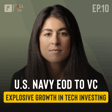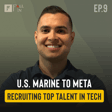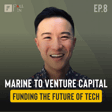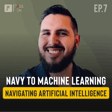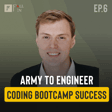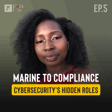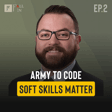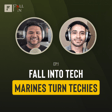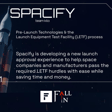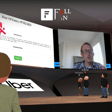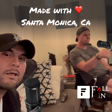
Leading the Charge: Greg's Triumph at the Fall In Vets Hackathon
Dive into an enlightening conversation with Marine Veteran, Greg Petropoulos, the dynamic team leader behind the victorious ensemble at the Fall In Vets Hackathon. From the trenches of coding challenges to the thrilling moment of clinching the win, Greg offers a unique perspective on leadership, tech, and the drive it takes to come out on top in a high-pressure environment. Whether you're an aspiring coder, a hackathon enthusiast, or just someone intrigued by the spirit of competition and camaraderie, this episode promises a blend of tech insights and the raw passion that defines a champion. Get a glimpse into the world of hackathons, the determination of an Infantry Marine turned tech leader, and the strategy that led his team to glory. Join us as we decode success, one line of code at a time.
